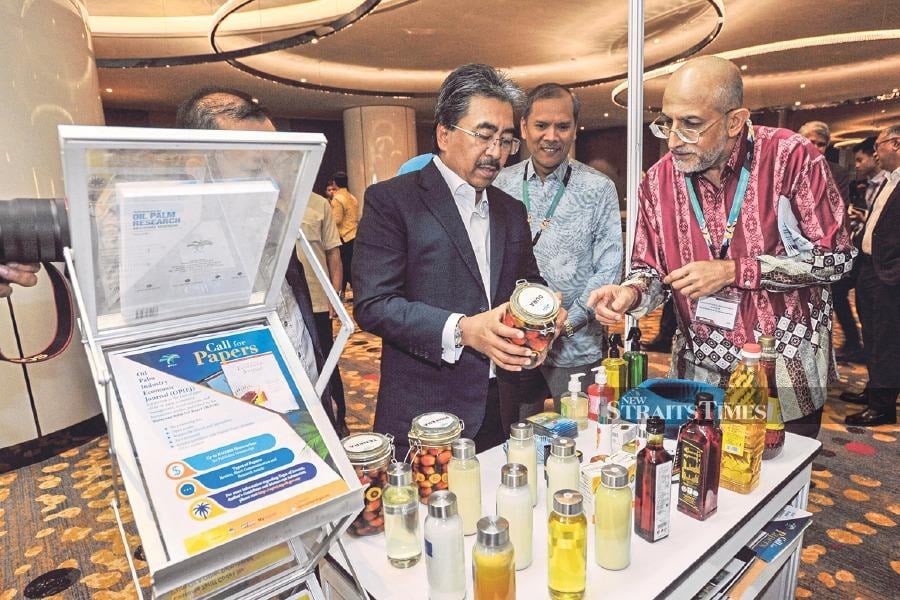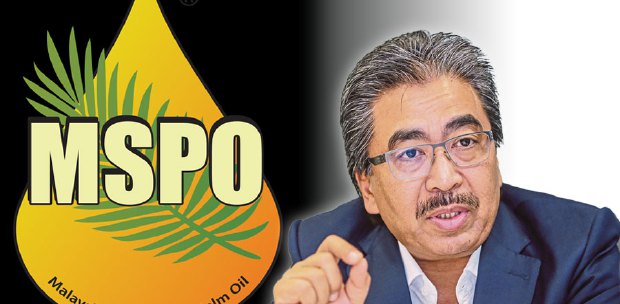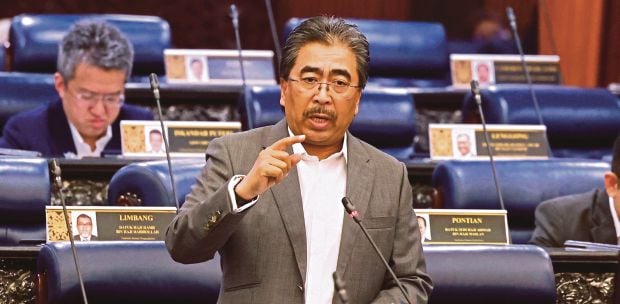KUALA LUMPUR: Crude palm oil (CPO) prices are expected to stabilise between RM3,900 and RM4,200 per tonne this year, backed by some 18.75 million tonnes of palm oil production amid improving labour conditions, industry executives said.
Challenges, however, remain as planters seek to comply with European and US regulations targeting links to deforestation and forced labour in the commodity's supply chain, they added.
The sector relies on foreign workers for 70 per cent of its plantation workforce, and it had seen a severe labour crunch in recent years, in part due to the Covid-19 pandemic.
Plantation and Commodities Minister Datuk Seri Johari Abdul Ghani said Malaysia must continue to position its palm oil industry as a global leader in sustainability.
MSPO certification programmes were intensified with continuous support from the Ministry, related agencies and various parties to ensure full adoption of sustainability requirements among the smallholders.
As of Dec 31 last year, the MSPO certification has reached 92.6 per cent, indicating that 5.23 million hectares out of a total 5.65 million hectares of oil palm planted areas in Malaysia in 2023 have been certified under the MSPO.
Additionally, about 92.68 per cent or 431 of the 465 mills in the country have also been certified under the MSPO, said Johari at an international seminar on palm oil organised by the Malaysian Palm Oil Board (MPOB) here today.
Integrating the Sawit Intelligent Management System with the MSPO certification will not only enhance operational efficiency, but also contribute significantly to meeting the EUDR requirements, he added.
When asked about JAG Capital Holdings Bhd's mandatory general offer (MGO) for KUB Malaysia Bhd, Johari - who owns 98.75 per cent stake in the former - said it is not due to any valuation issues.
On Tuesday, JAG raised its stake in KUB to above the 33 per cent threshold, triggering the MGO.
JAG said it did not intend to keep KUB's listing status should it secure 90 per cent of all KUB shares.
"We announced earlier to buy over Central Cables Bhd (CCB). Because of the share issuance, we triggered the GO (general offer), so I have to do the GO. I can't cancel the deal. So we have to proceed.
"The advisers say we have to do the acquisition and GO concurrently," he added.
He stressed that the corporate exercise had been announced prior to his appointment as minister.
"We have to be fair to the shareholders because they know the impact on the deal before my appointment (as the Plantation and Commodities Minister), so we have to proceed with the exercise. Nothing more than that," he added.
Last November, KUB proposed to acquire an 86.65 per cent stake in CCB from JAG Capital to venture into the power cable manufacturing business, for RM119.42 million. This will be satisfied via the issuance of 199.04 million new shares in KUB at 60 sen each.
Upon completion of the acquisition, KUB would extend an MGO to acquire all of the remaining CCB shares at RM2.60 per share to be satisfied either wholly in cash amounting up to RM18.4 million in total or via the issuance of new shares in KUB, also at an issue price of 60 sen per share.
However, on Jan 9, KUB announced that the CCB acquisition would be done via the issuance of redeemable convertible preference shares (RCPS) to JAG Capital. These RCPS can be converted into new ordinary KUB shares on a one-for-one basis.
Meanwhile, MPOB director-general Ahmad Parveez Ghulam Kadir said the CPO prices are expected to be firmer mainly due to global supply of palm oil, tight supply of soybean production and insufficient palm oil stocks.
"Another key drive that will influence the price of CPO for this year is the implementation of the B35 biodiesel mandate in Indonesia which is expected to limit global palm oil supply for the export market.
"Global supply of palm oil is expected to be tight due to unfavorable weather conditions in 2023 and we also think soybean production is expected to remain tight at least until April 2024, so this will support the prices," he told reporters after his presentation on Malaysian palm oil industry performance in 2023 and prospects for 2024 at the seminar.
Ahmad Parveez said Malaysia palm oil stocks are expected to fall below 2.00 million tonnes against 2.29 million tonnes in 2023, thus stabilising the price.
He said despite experiencing various challenges domestically and globally, the Malaysian palm oil industry has successfully met world demand with sustainable palm oil.
"The year 2024 is expected to show a better performance with all the key indicators of the industry projected to increase," said Ahmad Parveez.
He said palm oil exports are expected to improve in the months ahead with 15.6 million tonnes versus 15.1 million tonnes last year, supported by stimulating demand and competitive prices.
"Last year showed a mixed performance, while 2024 is expected to show a better performance with most key indicators improving, he said.
The Plantation and Commodities and MPOB as well as other related agencies will continue to work closely not only to address environmental concerns but also promote economic stability and social responsibility within the industry, ultimately paving the way for a more sustainable and balanced future, he added.
Council of Palm Oil Producing Countries (CPOPC) said while palm oil has been globally recognised as the most efficient crop with competitive price, there are continued anti-palm oil campaigns affecting the trading of palm oil in the global market.
CPOPC secretary-general Rizal A Lukman said these negative allegations include associating oil palm cultivation with deforestation and biodiversity loss, labour issues, food safety and health concerns with "palm oil free" labeling.
"Therefore it is important for palm oil producing countries to enhance the strategic partnership through CPOPC to counter the negative and unfounded allegations against palm oil using science-based evidence," said Rizal during his presentation on CPOPC roadmap in enhancing sustainability of palm oil and combating negative campaigns.
More importantly, he said the negative campaigners failed to recognise the key role of palm oil in contributing towards the attainment of the United Nations Sustainable Development Goals (SDGs).
"It is pivotal for the global community to recognise the concerted efforts of palm oil producing countries to ensure sustainable development of the oil palm industry balancing the protection of the environment and socio economic development," said Rizal.
He also said making sustainable certification mandatory shows that palm oil follows the strictest sustainable standards compared to other vegetable oils.
Kuala Lumpur Kepong Bhd chief sustainability officer Ku Kok Peng said sustainable certifications are expected to shape and influence the future trajectory of the palm oil sector, considering the environmental, social and economic aspects.
Important certifications driving this change include the Roundtable on Sustainable Palm Oil (RSPO), MSPO, Indonesian Sustainable Palm Oil and International Sustainability & Carbon Certification.
Expressing concern, Ku highlighted the declining uptake of certified volumes in the European Union (EU).
Despite being the leading consumer of certified palm oil, the EU has experienced a downward trend in total palm oil usage since 2020 - a worrisome development, particularly concerning lower food usage from palm oil, which is expected to remain relatively stable and is not typically influenced by economic cycles.





